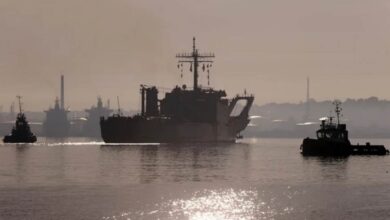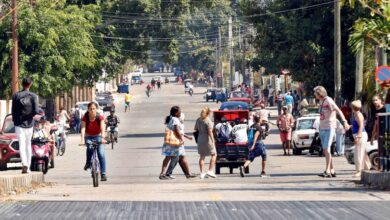Cuba’s Unfolding Economic Crisis Leads to Essential Shortages
Cuban officials have taken to the nation's television screens in recent weeks, painting an increasingly grim picture of their country's deepening economic crisis.

Photo: Pixabay
The Latin American Post Staff
Escucha este artículo
Leer en español: La crisis económica que se desarrolla en Cuba genera escasez esencial
Cuba's Economic Crisis Unveiled
In a series of unprecedented prime-time broadcasts, ministers have laid bare the extent of the downturn as Cuba, a Communist-run nation heavily reliant on imports, grapples with a fourth consecutive year of crisis, characterized by dwindling foreign exchange reserves and plummeting output.
As the island nation navigates these turbulent waters, key sectors such as food production, pharmaceutical supply, and transportation have suffered significant blows, with declines of at least 50% since 2018. The situation has continued deteriorating in 2023, primarily due to chronic fuel shortages and persistent power outages, exacerbating an already dire economic landscape.
Cuba's dependence on imports for food and fuel has left it vulnerable to economic shocks.
The pandemic, with stringent U.S. sanctions and a battered tourism industry, once a cornerstone of the nation's economy, has eroded crucial revenue streams. Against this backdrop, the country's top officials have publicly acknowledged the severity of the crisis, raising doubts about any substantial growth in the current year.
Impact on Everyday Life
The impact has been felt acutely in everyday life. Essential staples on the Cuban dinner plate, such as pork, rice, beans, and eggs, have seen production levels plummet by staggering percentages. For instance, pork, rice, and beans are down by over 80% compared to pre-crisis levels this year, while egg production has dipped by 50%. Chronic shortages have also affected vital resources like fuel, fertilizer, and animal feed, with only a fraction of the necessary supplies being acquired.
The healthcare system, long touted as one of Cuba's strengths, is now grappling with shortages of basic supplies like sutures, cotton, and gauze. Surgical procedures have dropped by 30% compared to 2019, and nearly 68% of essential pharmaceuticals are unavailable or in short supply. Patients and healthcare providers alike are bearing the consequences of these shortages.
Public transportation, a lifeline for many in a nation with limited private vehicle ownership, has also been severely affected. Fuel scarcities and difficulty procuring spare parts have decimated the public transit system. Transportation Minister Eduardo Rodríguez Davila revealed a staggering decline in bus services in Havana, once boasting 2,500 buses but now reduced to just 300, a mere fraction of what it was four years ago.
Also read: Ecuador and the Dominican Republic Launch Trade Talks
Nationwide Impact on Industry
Domestic freight traffic is suffering a similar fate, declining to half its 2019 levels. Furthermore, the industrial sector is operating at a mere 35% of its capacity, highlighting Cuban businesses' widespread challenges.
Acknowledging the need for reform, the Cuban government has grappled with the realities of its state-run economy. Pressured by mounting problems and tensions, local authorities have launched programs to alleviate hunger, construct homes, and improve transportation. However, the need for more funds significantly constrains their efforts.
As Cuba confronts the deepening chasm of its economic crisis, the nation stands at a crossroads. The resilience of its people and the ability of its government to implement necessary reforms will determine the trajectory of a country grappling with unprecedented challenges.





